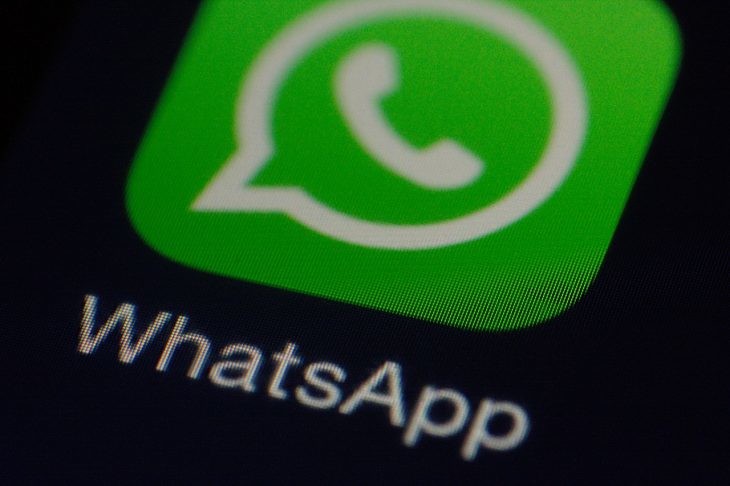
In recent years and as a result of the improvement in mobile connections and the popularization of smartphones, our way of communicating has changed significantly. An area in which instant messaging apps such as WhatsApp take on special prominence , which have become practically essential tools..
However, despite its advantages, all that glitters is not gold, as criminals and scammers have also known how to reinvent themselves to tempt their victims through the application. Today we collect some of the most famous scams carried out on this platform so that you can identify them in time.
The Premium SMS scam

Thus, we will start with one that resulted in thousands of victims - specifically, with 2.5 million only in our country according to figures from the Civil Guard's Central Operational Unit -: the so-called Premium SMS scam..
This operation reported more than 22.5 million profits to the scammers and had more than 14 shell companies and dozens of workers behind it. It is not surprising when we consider that its origins go back more than a decade.
To give you an idea, everything started by sending a message (first via SMS and later via WhatsApp) in which a hook was launched. This could be from a request from the Treasury, to a sexual encounter or a false job interview. To obtain more information, the victim had to send an SMS for which they would be charged 1.2 euros..
From then on, it was done, because this person was not only included in a database of potential scammers, but the game could be extended in such a way that criminals came to create profiles of fake girls on Twitter and obtain of the same subject up to 8 thousand euros. Behind the framework were two brothers from Alicante, Pablo and Antonio Simó, and a Valencian lawyer (Daniel Rodríguez), who were arrested just over a year ago and accused of criminal organization, forgery of documents, fraud, and money laundering.
WhatsApp Spy
"Vendemotos" apps that promise to spy on other people's WhatsApp conversations (a CRIME, by the way) #Fraude http://t.co/T1UKpn4Ku0
- National Police (@policia) June 5, 2013
Another of the cases that managed to capture hundreds of innocents was that of WhatsApp Spy , an alleged application that, although initially made known through Facebook, has to do with the usefulness at hand. Here, what was offered to the user was the possibility of being able to spy on the conversations of their contacts through this supposed app.
A trap in which more than eleven thousand people ended up falling and that collected small amounts of each of them, the main reason why many complaints were not detected. In this case, the interested parties had to enter a web page through which they ended up signing up for a Premium SMS service .
In addition, when registering, they offered a kind of personal data that their creator used to spread the scam on their behalf. Its creator? A 23-year-old engineer from Murcia who pocketed the not inconsiderable figure of 40,000 euros.
WhatsApp Gold
Have you downloaded #WhatsAppGold? It is #phishing #fraud
1. Delete app
2. Pass the antivirus
3. Change passwords pic.twitter.com/aoRsy1T4JN
- National Police (@policia) May 27, 2016
WhatsApp Gold operated in a similar way , a supposed Premium version of WhatsApp that, theoretically, had been leaked to the public and was originally limited to celebrities. It promised video calls, deleting messages, sending more than 100 images simultaneously, more emoticons and other very attractive functions.
Of course, nothing further, but again he subscribed us to SMS Premium services and stole our personal information to use it fraudulently. A scam that the police reported in May of last year and before which we had to eliminate the app, pass the antivirus and change all our passwords .
Discount coupons

Companies like Ikea, McDonalds, Aldi, Lidl, Amazon and H&M have also seen their name used as bait . In these scams the hook was something much simpler: money. Now, this appeared transformed into a discount coupon, a supposed gift, free shipping of certain products, entry into the raffle for a shopping cart and the like.
If we specify a little more, the Aldi one tempted with a contest to win a purchase worth between 50 and 500 euros, while the Amazon one directly assured that this amount had been won. All with a very realistic appearance and using the logos of the respective companies. IKEA's was to answer a survey in order to get a discount. To qualify for it, the victim had to share it through WhatsApp with at least ten of his contacts.
The fact of the matter is that the victim received the offer in question from one of his contacts. Upon entering it, he had to fill out a questionnaire that allowed tricksters to collect personal data from the user and subscribe them to a service, again, of payment messages. Crimes that, although they have been reported - usually by the police and cybersecurity firms - do not stop proliferating and changing. Dates like Christmas, Valentine's Day, and more are especially vulnerable.
Free Internet without WiFi

One of the latest scams (detected this past December ) promised Internet without WiFi thanks to WhatsApp. A fraud that was also spread through social networks and was camouflaged as a kind of WhatsApp's own promotion. To enjoy it, again, it had to be shared with five groups or thirteen friends.
To achieve an aspect of credibility, the criminals included comments on Facebook from fictitious users, ensuring the effectiveness of the service. They were obviously part of the deception.
Your mobile more secure
In short, a series of frauds that we must be aware of in order to avoid future problems and that, as we have seen, share a series of common features.
Looking at the app captures and their description to get away from the false ones, and installing antivirus and the like on our terminals are other key points to avoid it.
The Phab 2 Pro has factory integrated solutions such as McAfee Security. The phone includes an extra layer of security thanks to its unlocking by fingerprint.
Images | Pixabay